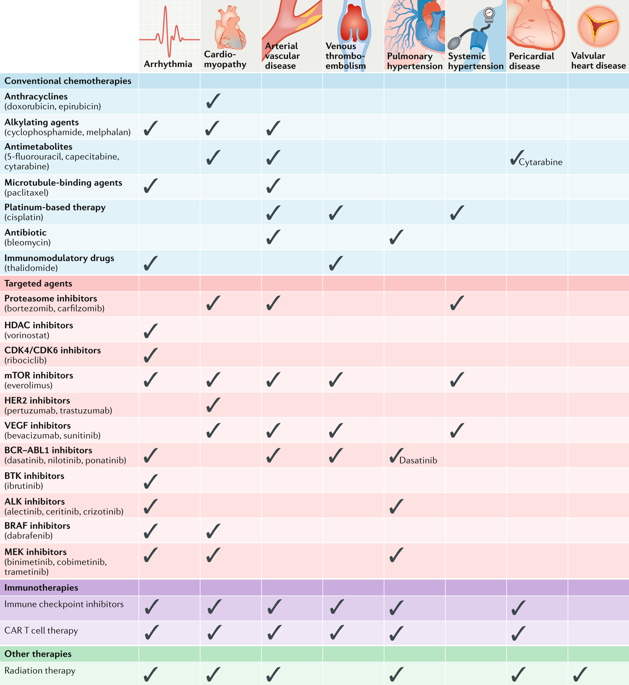Nature Reviews Cardiology ( IF 41.7 ) Pub Date : 2020-03-30 , DOI: 10.1038/s41569-020-0348-1 Joerg Herrmann 1

|
Remarkable progress has been made in the development of new therapies for cancer, dramatically changing the landscape of treatment approaches for several malignancies and continuing to increase patient survival. Accordingly, adverse effects of cancer therapies that interfere with the continuation of best-possible care, induce life-threatening risks or lead to long-term morbidity are gaining increasing importance. Cardiovascular toxic effects of cancer therapeutics and radiation therapy are the epitome of such concerns, and proper knowledge, interpretation and management are needed and have to be placed within the context of the overall care of individual patients with cancer. Furthermore, the cardiotoxicity spectrum has broadened to include myocarditis with immune checkpoint inhibitors and cardiac dysfunction in the setting of cytokine release syndrome with chimeric antigen receptor T cell therapy. An increase in the incidence of arrhythmias related to inflammation such as atrial fibrillation can also be expected, in addition to the broadening set of cancer therapeutics that can induce prolongation of the corrected QT interval. Therefore, cardiologists of today have to be familiar not only with the cardiotoxicity associated with traditional cancer therapies, such as anthracycline, trastuzumab or radiation therapy, but even more so with an ever-increasing repertoire of therapeutics. This Review provides this information, summarizing the latest developments at the juncture of cardiology, oncology and haematology.
中文翻译:

癌症治疗对心脏的不良影响:心脏毒性和心律失常。
癌症新疗法的开发取得了显着进展,极大地改变了多种恶性肿瘤的治疗方法,并持续提高患者的生存率。因此,癌症治疗的副作用越来越重要,这些副作用会干扰最佳护理的持续性、诱发危及生命的风险或导致长期发病。癌症治疗和放射治疗的心血管毒性作用是此类担忧的缩影,需要适当的知识、解释和管理,并且必须将其置于癌症个体患者整体护理的背景下。此外,心脏毒性谱已扩大到包括免疫检查点抑制剂引起的心肌炎和嵌合抗原受体 T 细胞治疗的细胞因子释放综合征背景下的心脏功能障碍。除了扩大可导致校正 QT 间期延长的癌症治疗方法外,与炎症相关的心律失常(例如心房颤动)的发生率也可能会增加。因此,当今的心脏病专家不仅必须熟悉与传统癌症疗法(例如蒽环类药物、曲妥珠单抗或放射疗法)相关的心脏毒性,而且更需要熟悉不断增加的治疗方法。本综述提供了这些信息,总结了心脏病学、肿瘤学和血液学领域的最新进展。











































 京公网安备 11010802027423号
京公网安备 11010802027423号